Most business owners experience Cash flow problems. This blog post identifies the most common cash flow mistakes made by business owners and discusses ways to rectify them.
Cash flow is the heartbeat of a business. It has many uses in operating a business and performing financial analysis. Cash flow refers to the net amount of cash coming in and going out. There are two main terms: inflows and outflows. Inflow means you are getting money; outflow means you are paying.
Let’s focus on the basics of cash flow here.
As a business owner, your capacity to create value for the company and its stakeholders is determined by your ability to generate positive cash flow in the long term. So, if a business owner experiences a cash flow issue, he should detect the reason as soon as possible and take action immediately.
Poor cash flow is a burden for most businesses. Incorrect sales forecasting is one of the most dangerous cash flow issues and causes the following problems:
- Over Investment
- Wrong product or service price
- High Overhead costs
- Improper bookkeeping practice
- Inventory Overflow
- Delay in the collection of receivables
- Unplanned payable activities
Lets move to the details:
Inaccurate sales forecasting
Most business owners do not carry out proper market research and launch products before having a sales engine in place. Achieving a sales target that’s lower than your prediction can cause severe issues in your incoming cashflows.
If you can’t sell your goods or service on time, you will face poor cash inflows.
Pro Tip: Research your product and get an accurate sales forecast to see how effectively your sales team members work to get to the target.
Over Investment
Many business owners invest more than is needed. They don’t keep cash for operational activities. They don’t understand what is required and what’s not. Overinvesting is terrible for risk-shifting or asset substitution projects. Overinvestment is an essential source of value destruction in a pyramidal structure. Business owners can’t understand the result of an investment for the short and long run.
Pro Tip: Before any investment, a business owner should calculate the risk ahead. Risk and Opportunity study can be good practice, and they also need to be careful about upcoming or ongoing inflation rates that may affect their business. It would help if you kept in mind that downsizing your investment will give you capital, allowing you to overcome poor sales or upcoming losses.
Faulty pricing structure
Pricing strategy sometimes causes poor cash inflow. Occasionally, to boost sales, businesses reduce their price or considerably overprice their product or service. Both tactics will affect your cash flow.
Pro Tip: Proper pricing strategy is needed if you want to stay in your business for a long time and make it profitable. Do some research about your competitors and customer mindset. What are your competitors charging for a particular product, and what is their market share? You need to pay attention to your product quality, and you can add some value to your product and keep the same price. If you think customers will go for cheaper products, that will lead to poor returns, and your organization will not be sustainable.
High Overhead costs
Business owners sometimes overspend. They invest in unnecessary and unplanned marketing campaigns. They hire unproductive and inefficient employees, resulting in undesirable overhead costs. Due to inefficient employees, your expenses rise, quality of work goes down, and that impacts your cash flow.
Pro Tip: Keeping costs in control should be the ultimate goal if you want to make your business profitable and have cash available for running your business.
Improper bookkeeping practice
Most businesses do not practice bookkeeping properly. Despite affordable and convenient apps and software, companies don’t practice bookkeeping properly due to an inexperienced workforce.
Pro Tip: Whatever your business size is, you must practice proper bookkeeping. That will ensure appropriate inflows and outflows of cash. Some companies take care of bookkeeping and other financial activities, and it might be best to outsource this function to a capable firm or hire a good Accountant.
Inventory Overflow
Due to wrong forecasts, you can create excessive products or buy more raw materials than you need. Both will impact your cash flow.
Pro Tip: As mentioned earlier, you need to have an accurate sales forecast. You need to buy raw materials in a planned way, so none of the finished goods or the raw material are waiting to be procured in your inventory.
Delay in the collection of receivables
Sometimes businesses sell goods on credit or delay invoicing routinely. This impacts cash inflows.
Pro Tip: Proper bookkeeping will ensure your receivables are within your grasp, which will positively impact cash flow.
Unplanned payable activities
Business owners don’t plan the payable activities when purchasing raw materials or various assets. They buy goods and don’t have proper plans.
Pro Tip: When it comes to raw materials, you always need to ensure timely payment to your supplier. Otherwise, it may hamper your sales. Your payables should be planned for every supplier, employee, or agency.
This is a list of the most common cash flow problems faced by business owners. By following the tips above, you will overcome these significant issues and enjoy higher revenues and a smooth operation.
As Sir Richard Branson puts it, “Never take your eyes off the cashflow because it’s the lifeblood of business.”


